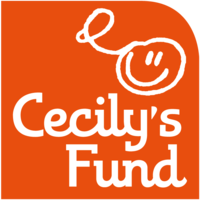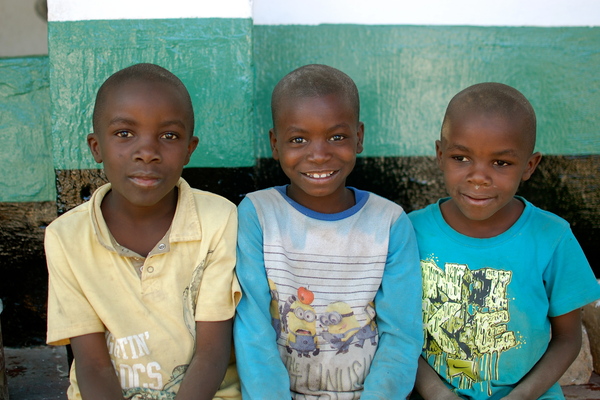FAQ - Cecily’s Fund and Kaloko Trust UK
GENERAL OVERVIEW
Q: Why is Kaloko being taken on by Cecily’s Fund
A: Kaloko Trust UK (KTUK) approached Cecily’s Fund in 2021. After operating exclusively in Zambia for 30 years’ KTUK decided it had insufficient capacity and funds to continue operating in the UK, but it wanted its work and impact to continue in Zambia. Cecily’s Fund was identified by KTUK as a charity that would be able to continue with the work established by KTUK but also add value. Cecily’s Fund will take over KTUK’s programmes to ensure that rural communities can continue to get the support they need after the closure of KTUK. In this way the most vulnerable communities living in very hard to reach areas can still receive support and help.
Q: Why did Kaloko choose Cecily’s Fund
A: Kaloko Trust recognised Cecily’s Fund’s reputation and longstanding experience supporting vulnerable communities in Zambia. Kaloko Trustees and staff felt that Cecily’s Fund provides the vision, capacity, and experience that was needed to protect the assets and add value to KTUK work.
Q: Does Cecily’s Fund sponsor children
A: Cecily's Fund does not support individual children as we believe that this is not sustainable and not an effective development approach. Rather, we adopt a holistic approach to development to ensure that the most vulnerable children receive an education and go to school; when they are in school, we help them to succeed and believe in themselves through peer education and life skills, we help them beyond school through psycho-social support, life skills, entrepreneurship and other training to help them out of poverty, and we strengthen vulnerable communities in a variety of ways through savings groups, business development and specific support for women and girls. These are just a few things that Cecily's Fund programmes cover. We have been working in Zambia for more than 25 years and have gained a reputation for high quality programmes that make a real difference to people's lives, and especially children who have lost their parents through HIV/AIDS.
Q: What are the controls surrounding expenditures incurred by our partners
A: After approval of the annual budget (in £ sterling) at the very start of the financial year, our partners are then requested to submit a funding request, normally quarterly in advance, to demonstrate that the funds being requested are in line with the annual budget and workplans. The Finance Manager maintains a Remittance Control Sheet for each partner to monitor the progress of actual versus budgeted expenditure and the extent to which exchange gains or losses have been incurred.
Q: What are the key factors to ensure that Cecily’s Fund maintains a strong financial situation
A: Our financial situation is underpinned by having a broad spectrum of donors ranging from individuals to charitable trusts to institutional bodies to community fundraising. We have never become overdependent on any one particular source of donations. We also have a robust system of internal financial controls and procedures which comprise the following steps: a) approval of annual budgets for both UK and Zambian partners’ operations to ensure the setting of balanced budgets b) monthly monitoring of income and expenditure to ensure that these are in accordance with the underlying approved budget parameters c) the level of reserves maintained by the charity is between 3 and 6 months’ operational expenditure d) annual Memoranda of Understandings are signed with each Zambian partner which include the treatment of foreign currency losses which are borne by the partners and e) presentation of quarterly financial reports to the Board of Trustees for their approval.
Q: Will you be changing the name of the charity
A: There are no plans to change the name of Cecily’s Fund.
PROJECT WORK
Q: What will happen to Kaloko projects
A: Schools supported by KTUK supporters will continue to receive support through Cecily’s Fund. We will continue to work with Kaloko Trust Zambia as a new implementing partner in Luansobe, who will administer and monitor local funds sent to schools. In addition Cecily’s Fund where possible, will extend its community strengthening programmes and Peer Education training into rural schools. Funding applications developed by Cecily’s Fund will include water, sanitation and hygiene interventions when it is appropriate and if we identify suitable funders to develop applications based on local needs.
Q: Is CF running Kaloko projects, if not what will happen to them
A: Cecily’s Fund will work with KTZ (Kaloko Trust Zambia) who will be our local implementing partner for projects that are in the rural areas and which were originally set up by KTUK. If and when we introduce a new programme into Luansobe, and which has been designed and developed by Cecily’s Fund, we will work closely with KTZ on the implementation. KTZ would then monitor and implement any new CF programmes and report back to us as required. We also intend to include the former KTUK projects into our regular monitoring trips carried out by UK staff.
Q: Is anyone we support going to be worse off because of this
A: No. It is highly unlikely that there will be a detrimental aspect to Cecily’s Fund taking over KTUK’s programmes. It is more likely that local projects will be more stable and new programme development will occur because of Cecily’s Fund’s experience and expertise in development. We intend to add value and impact to the legacy of work originally set up by KTUK and have a great responsibility to continue to build on this.
Q: Have you met our projects
A: Yes. As part of Cecily’s Fund’s commitment to transparency and good governance, a programme trip was carried out by the CF Director and Programmes Manager in March 2022. During that trip we visited all the schools to be supported by Cecily’s Fund (except one because the rains made the road impassable), we inspected boreholes and latrines, we met Head Teachers and school staff, and we spoke to local beneficiaries.
Q: What will CF be doing on the ground
A: Cecily’s Fund will continue with its programming in Zambia’s Copperbelt through our local implementing partners CHEP (Copperbelt Health Education Project) and now KTZ (Kaloko Trust Zambia). We work closely with local partners to develop thorough work plans that are aligned to certain deliverables/activities which are then monitored and assessed for effectiveness and social change. We work closely with our partners and are in regular contact so that we understand the challenges, can acknowledge successes, and also make adaptions if necessary. Our work focuses on community strengthening initiatives to help local people become more financially secure and to lead healthy, happy lives. This is achieved by helping the most disadvantaged and vulnerable children to gain an education, to help children succeed when they are in school, to continue to help them beyond school through Peer Education and life skills, and, by supporting parents and guardians with financial literacy, basic rights, savings groups, and small business development.
Q: How will this merger impact local organisations such as Kaloko Trust Zambia KTUK works with on the ground in Zambia?
A: We have also spent time over the last year talking with our friends and partners at Kaloko Trust Zambia about how we can make them as resilient as possible in these uncertain times. Kaloko Trust Zambia, and its sister organisation, Kaloko Resources, have ambitious plans to restructure their operations so that they are sustainable long into the future, and can continue to serve local communities. This restructuring work is already well underway, and the Kaloko Trust UK Board has committed funds to support it. Local plans include the creation of an ICT hub for use by schools, a social enterprise aiming to generate employment and opportunities for local youths skilled in carpentry, and ongoing work on education, health and sanitation projects.
Cecily’s Fund’s expertise and experience in entrepreneurship development, education support, community strengthening, peer education, and gender equality, will help to add value and impact to our programmes, and ensure that your donations and support continues to help the poorest and most disadvantaged communities in Zambia.
Q: Will taking on new projects dilute the work of Cecily’s Fund and divert funding
A: Both Cecily’s Fund and KTUK have very similar vision mission and values, and is why KTUK requested that Cecily’s Fund would consider taking on its programme assets. The expansion into new areas presents an opportunity to increase the scope of fundraising both through individual supporters and grant makers which will extend the reach and impact of our work in Zambia.
SUPPORTER FUNDRAISING
Q: How will the proposed changes affect supporters of KTUK
A: There will be no immediate change to the way donations are used. Overtime Cecily’s Fund may direct donations to where the need is greatest by working closely with our local implementing partners and through our own monitoring visits. Supporters can choose to specify where their donation is used. We recognise that there will be practical considerations for all supporters and donors, in transferring your support to a new UK charity. We take our responsibilities very seriously, and our agreements with KTUK include robust measures to look after you and your data properly.
Q: Where is my money going
A: All donations sent to Cecily’s Fund support the work of Cecily’s Fund in Zambia. This will include schools originally supported by KTUK.
Q: Can you restrict my donation to only Kaloko projects
A: It is possible to restrict donations to a particular aspect of Cecily’s Fund’s programmes which now include schools supported originally by KTUK. However, donations are much more effective if they are not specifically ring fenced as this enables Cecily’s Fund to direct funding where it is needed most. This can be especially important for schools and communities where they might benefit from additional, emergency support if required. The impact of Covid19 is a good example of this.
Q: I want my donation to fund only Kaloko project work is that possible
A: Yes. You can allocate your donation to any area of work that you feel best represents the spirit of your donation, simply let us know where you would like your funds to go.
Q: How can I stay up to date or find out more about what is happening to the Kaloko project work
A: By signing up to our newsletter you will receive regular updates about how your support is making a difference across all our programmes, including those KTUK projects which are now integrated into Cecily’s Fund’s programming.
About Cecily’s Fund
Cecily’s Fund was founded by the parents of Cecily Eastwood who died in a car accident in Zambia in June 1997 while on her gap year before going to university. Money raised in donations for her funeral were sent to the Zambian NGO in Kitwe where she had been working as a volunteer. The money was used to place all the orphans and vulnerable children in their care into school for one year. It was the height of the AIDS pandemic, and Zambia had 1.2 million orphans out of a total population of only 12 million. From this Cecily’s Fund was created. Since then, the charity has expanded its reach and impact from purely funding education fees to:
Enabling orphans and vulnerable children to go to school
Supporting them to succeed at school
Preparing them for life beyond school, and
Strengthening communities to support the most disadvantaged children.
Image is courtesy of Jill Flowers for Kaloko Trust






